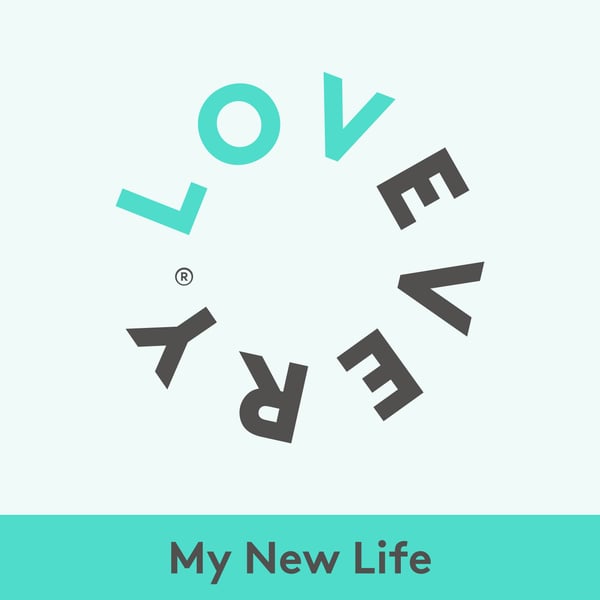Intensive Parenting: Why Take a Step Back?
My New Life
Kate Garlinge
4.7 • 654 Ratings
🗓️ 13 January 2021
⏱️ 22 minutes
🧾️ Download transcript
Summary
There is a lot of advice out there for parents. Not only are parenting books multiplying in number, they are increasing in volume. And there is certainly no shortage of online resources. Instagram now has so many parenting experts you can get an almost endless scroll of advice.
The abundance of information can be helpful on the one hand. But it can also lead us to think we are not doing enough, making it is easy to slip into over-parenting. This hands-on approach is sometimes referred to as intensive parenting, and its benefits (to both parent and child) are up for debate.
For a closer look at intensive parenting and how we can recognize it in ourselves, Jessica Rolph speaks with Developmental Psychologist Dr. Holly Schiffrin. She discusses all-important parenting skills like how to stand back and allow your child to experience natural consequences.
Key Takeaways:
[1:20] Holly co-authored a study called Insight into the Parenthood Paradox: Mental Health Outcomes Of Intensive Mothering. What was her objective in studying this style of parenting?
[4:55] Is motherhood supposed to be joyful at every turn?
[5:18] The study compared moms working in the home versus moms who also work outside the home.
[6:16] Parents who stay at home with their kids often go without the kind of recognition customary in paying jobs.
[6:53] The research suggests that mothers who rated particularly high on the idea of essentialism, that mothers are the essential parent, were less satisfied with their lives.
[8:00] Holly discusses the outcomes she’s observed in the children of intensive parents.
[9:56] What is the difference between intentional and intensive parenting?
[11:02] Has the pandemic made parents more or less intensive?
[12:35] What are the factors driving this intensive parenting approach?
[15:20] Holly talks about parental unhappiness.
[16:15] How does parenting in America compare to parenting in other cultures?
[17:15] Holly offers advice for parents of babies and toddlers.
[20:25] Jessica shares the highlights of her conversation with Dr. Holly Schiffrin.
Mentioned in this episode:
Brought to you by Lovevery.com
Transcript
Click on a timestamp to play from that location
| 0:00.0 | Parenthood is a time of so much change for you and your baby. |
| 0:12.8 | A little reliable information can go a long way towards making this new life a good life. |
| 0:18.6 | I'm Jessica Rolfe, and this is my new life, a love every podcast. |
| 0:28.1 | There's a lot of advice out there for parents. Not only are parenting books multiplying a number, |
| 0:33.7 | but they are increasing in volume. And there is certainly no shortage of online resources. |
| 0:39.5 | Instagram now has so many parenting experts you can get an almost endless scroll of advice. |
| 0:45.0 | On the one hand, this is helpful, but it can also lead us to think we aren't doing enough. |
| 0:51.0 | It's easy to slip into the mode of over-parenting. This hands-on approach is sometimes |
| 0:55.7 | referred to as intensive parenting, but its benefits to both parent and child are up for debate. |
| 1:03.0 | For a closer look at intensive parenting and how we can recognize it in ourselves, I'm speaking |
| 1:08.0 | today with developmental psychologist Dr. Holly Schifrin. She discusses |
| 1:12.8 | all important parenting skills, like how to stand back and allow your child to experience |
| 1:16.6 | natural consequences. You co-authored a study called Insight into the Parenthood Paradox, |
| 1:22.5 | Mental Health Outcomes of Intensive Mothering. At the time of the study, what was your |
| 1:26.9 | objective in studying this style of parenting? So. At the time of this study, what was your objective in studying this |
| 1:28.3 | style of parenting? So I was the mother of young children at the time that I got the idea to do |
| 1:35.1 | the study, and so was one of my colleagues that I worked with. And we had become interested in this |
| 1:40.9 | idea of intensive mothering that had been developed by a woman named Sharon |
| 1:45.4 | Hayes, just seeing, you know, our friend's parents, our friends, our children and feeling this |
| 1:51.8 | pressure as parents of young children to be so intensively involved in their lives. And so |
| 1:58.5 | Sharon Hayes' book on intensive mothering was based on a series of |
| 2:03.2 | qualitative interviews that she had done with women, having them describe their experiences as |
... |
Please login to see the full transcript.
Disclaimer: The podcast and artwork embedded on this page are from Kate Garlinge, and are the property of its owner and not affiliated with or endorsed by Tapesearch.
Generated transcripts are the property of Kate Garlinge and are distributed freely under the Fair Use doctrine. Transcripts generated by Tapesearch are not guaranteed to be accurate.
Copyright © Tapesearch 2025.

